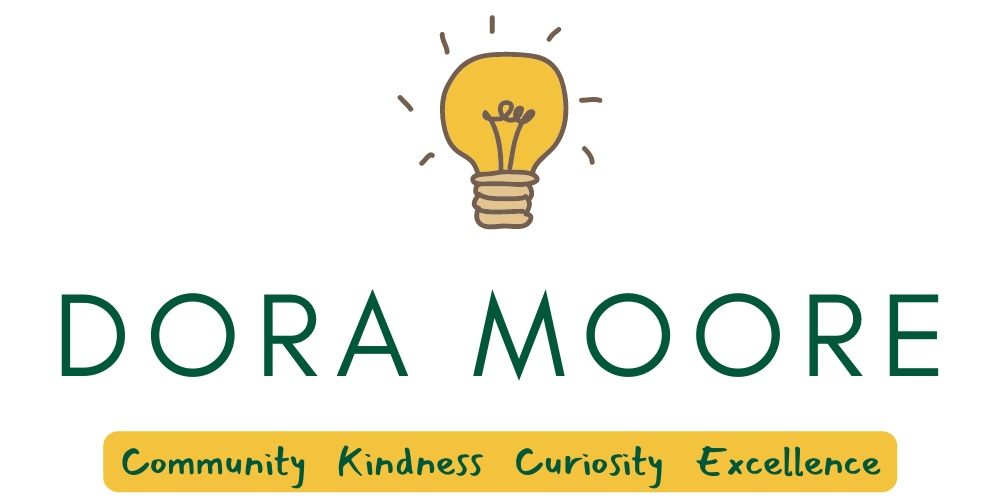Restorative Practices

We believe that building, sustaining, and repairing relationships with all students, families, and staff through restorative practices develops empathy, positive conflict resolution, cultural competency, and trauma awareness.
Dora Moore Vision and Values
Restorative practices help Dora Moore to create and maintain a positive school culture and climate.
Restorative practices are used in a variety of ways here at Dora Moore:
- to build community
- celebrate accomplishments
- intervene in offending behavior
- to transform conflict that may occur between adults or young people
- to rebuild relationships that have been damaged
- reintegrate students who have been excluded through suspension and expulsion
Basic Overview of the 5 R’s of Restorative Practices: https://conflictcenter.org/the-5-rs-of-restorative-justice/
Restorative Practices are a set of principles and practices to respond to student misconduct, with the goals of repairing harm and restoring relationships between those impacted. Both the theory and practice of restorative justice emphasize the importance of:
(1) identifying the harm
(2) involving all stakeholders to their desired comfort level
(3) true accountability
(4) taking steps to repair the harm and address its causes to the degree possible.
Restorative Practices presents opportunities to those impacted by an event to collectively define the impact and determine steps to make things as right as possible for everyone involved: the person(s) harmed, the person(s) who harmed others, and the broader community that was affected both directly as well as indirectly.
This work is grounded in three core questions:
1.) Who has been hurt?
2.) What are their needs?
3.) Who has the obligation to address the needs and put right the harm?
In terms of discipline, restorative justice takes incidents that might otherwise result in punishment and in them finds opportunities for students to recognize the impact of their behavior, understand their obligation to take responsibility for their actions, and take steps towards making things right. In this process students learn how to interact and manage their relationships with adults and peers; they become better equipped to understand how their behavior impacts others.
Steps Towards Restorative Practices
Phase 1: Facilitate Student Reflection of the Incident
Phase 2: Discuss Student Need and Plan to Address Need
Phase 3: Plan to Restore Relationships
Phase 4: Restore and Repair
Adapted from Oakland Public Schools, Turnaround for Children Engaging in Restorative Conversations with Students Tookit, and the Conflict Center